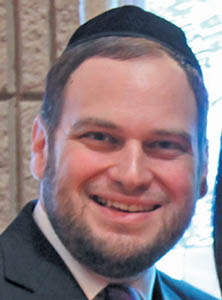
“Stop kvetching!” I recall my mother, a”h, telling me. “Make the most of your situation!”
Growing up, I always complained to my parents about the lack of friends to play with on Shabbos, and the fact that I was the youngest person in our shul for my entire childhood. I grew up in the Bensonhurst section of Brooklyn in the 1980s. While Bensonhurst had seen glory days of Orthodox Jewish life, during the ‘80s most of the families who had affiliated with the Young Israel moved out of the area. There is something I miss terribly about those years, although then I wasn’t able to grasp just how powerful the circumstances and environment of my childhood would play on my development. This past week has brought those memories back. My rabbi, Rabbi Elias Schwartz, z”l, passed away last week. He left behind a wonderful family and tremendous legacy. Rabbi Schwartz was the legendary principal of Yeshiva Toras Emes Kaminetz in Brooklyn where he earned a reputation as a master educator of yesteryear. Rabbi Schwartz was also the rabbi of the Young Israel of Bensonhurst for decades. For me, however, Rabbi Schwartz was something else. Being his youngest member gave me the opportunity to forge a close relationship with him, a connection that I would come to cherish until this very day. He was “my rabbi” as I grew up—always caring, as well as sincerely concerned about every aspect of my life. Rabbi Schwartz offered me opportunities that other young men in larger communities never had. I was gabbai, baal koreh, and would give the dvar Torah when he was away for Shabbos. I credit Rabbi Schwartz in helping to mold me into who I am today. My parents, a”h, would beam with nachat when seeing me in shul, and I felt their pride.
I have tried to focus over the past few days since I heard of his passing as to what impacted me the most from my connection to Rabbi Schwartz. I have met few people who had a greater love for Torah than him. It was rare to ever see him without a sefer, and without having his index finger on a line of Gemara. I remember one Friday night after Rebbetzin Marcia, a”h, had passed away, he joined my family for the meal at our home. I was excited to show him my sefarim collection in my room. Rabbi Schwartz asked me if I had a certain sefer; when I started to look for it, he told me that I should challenge myself to always be familiar with the place of every single sefer in my bookcase. He implied that many people have libraries of sefarim that collect dust. He encouraged me to get to know my sefarim and to be familiar with them so that they were used regularly and brought to life. I remember vividly all of the Friday nights for many years that we would walk home together from shul and that his lips were always moving. Whether walking or driving, Rabbi Schwartz was always saying Tehillim. While there are many stories that I can recall, two of his slogans have stayed on my mind most through these years and I have adopted them into my own toolbox as a pulpit rabbi. The first was the message that Rabbi Schwartz would share with bar mitzvah boys putting on tefillin for the first time. He insisted that their tefillin should enter into their mind, heart and bloodstream. He was ahead of his time. With all the focus on spirituality today, if we only internalize our rituals as Rabbi Schwartz encouraged, we would feel closer to Hashem at every opportunity. I seldom put on tefillin in the morning without thinking about Rabbi Schwartz even for just a moment. I have continued to share his bracha in his name with boys who put on tefillin for the first time in my shul. The second most powerful impact for me was Rabbi Schwartz’s signature ending to his simcha speeches. Although it may have seemed redundant to others, I was very touched when he shared it with me at my bar mitzvah. He concluded his remarks by saying that the bar mitzvah should bring nachat to klal Yisrael, his family, friends, “and to the most important person here tonight, to yourself.” Rabbi Schwartz stressed that a person could only grow in Torah and life if they feel a sense of self, purpose and accomplishment. He always encouraged me to be my best, and never missed an opportunity to tell me how proud he was of my accomplishments. Rabbi Schwartz brought Torah to life and lived it by example. I will never forget his love for Torah, the mesorah, his family, talmidim and klal Yisrael. My relationship with Rabbi Schwartz in retrospect taught me just how valuable one’s environment is to their success.
The Midrash tells us that when Rivka passed by a house of idol worship, Esav was pushing to get out of the womb, and when she passed by the Yeshiva of Shem v’Ever, Yaakov was pushing to get out. It is completely understandable according to the Midrash why Esav would be trying to leave the womb, yet a question is asked regarding Yaakov. The Talmud in Masechet Niddah teaches us that when a child is in its mother’s womb it is being taught all of the Torah by an angel. What could be better? Why would Yaakov want to leave such a setting to have to toil in Torah learning on his own when he could just stay put and learn from the malach? Rav Bonim of Peshischa, zt”l, explains that the Torah is teaching us about how impactful a person’s environment can be on their ability to function and succeed. Even though Yaakov was learning with the malach he was still in the company of Esav, and thus the environment was not tenable for his success. As I recalled in this article the gift Hashem gave me of growing up in a special environment, may we all pause and contemplate the impact of our environment today on our ability to grow spiritually and bring nachat to ourselves. May the neshama of Harav Eliezer ben Yehudah, z”l, be a meilitz yosher for all who desire to learn and grow closer to Hashem.
By Rabbi Eliezer Zwickler
Rabbi Eliezer Zwickler is rabbi of Congregation AABJ&D in West Orange, NJ, and is a licensed clinical social worker in private practice. Rabbi Zwickler can be reached at [email protected].













